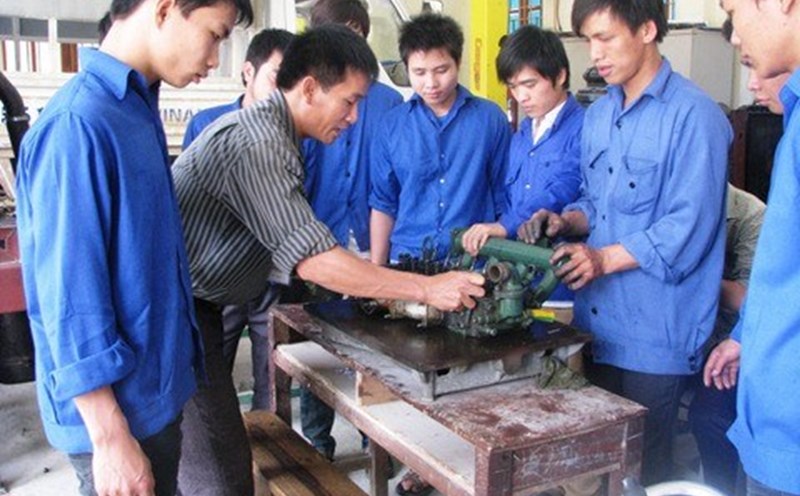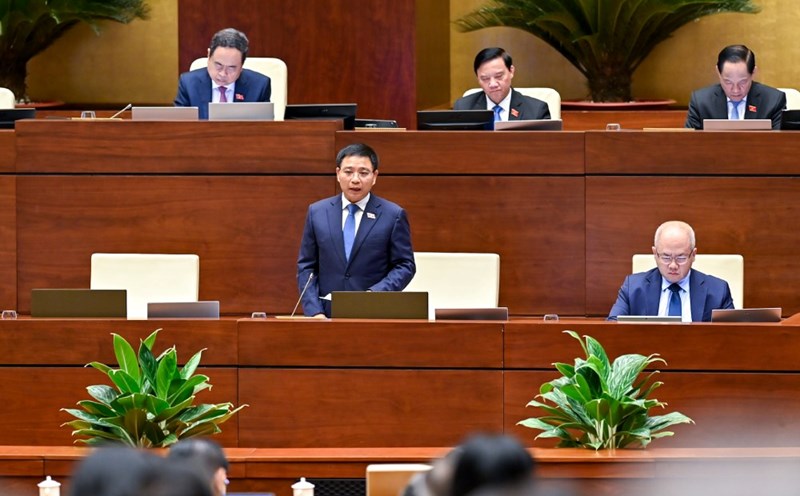The report on the results of the thematic supervision of the National Assembly Standing Committee on "Implementation of policies and laws on human resource development and use to meet the requirements of socio-economic development, especially high-quality human resources" shows that the quality of education and training in our country is increasingly improved, better meeting the needs of human resource development, serving socio-economic development.
The scale of university and vocational training is generally stable during the supervision period. The structure of professions, qualifications, and training fields is diverse. Many new industries have been opened, quickly adapting to the needs of the labor market.
The scale of human resources has developed, the structure is increasingly suitable; the qualifications and skills of the workforce have been improved; labor productivity, employment, and income of workers have changed positively.
Policies to attract, promote and treat high-quality human resources of ministries, branches and localities have initially been effective.
However, in the context of entering a new era, with higher human resource requirements, our country is facing the risk of a shortage of high-quality human resources, especially leading experts, in the fields of science, technology, new economic fields, artificial intelligence, semiconductors, hydrometeorology, etc.
The structure of training majors is not really reasonable, not closely linked and keeping up with the needs of practice.
The rate of students studying economics, finance, and law is quite high. The rate of students majoring in basic science groups, agriculture, forestry, fishery, etc. tends to decrease.
A number of teachers are still limited in their capacity and professional skills. The transfer and replication of vocational training programs according to international standards is still difficult and unsynchronized.
The allocation of high-quality human resources is still unbalanced, concentrated in large cities. Although labor quality has improved, the speed is slow, not meeting the development requirements of the labor market in the context of promoting the application of science, technology, innovation and digital transformation.
The recruitment and use of human resources in the public sector, especially in public service units, still has some shortcomings.
The mechanism for evaluating cadres is not substantial, the qualitative tinh is not high, and is not associated with specific work products; there is a lack of an effective screening mechanism to promptly replace weak and unprestigious cadres, civil servants, and public employees.
Vice Chairwoman of the National Assembly Nguyen Thi Thanh said that high-quality human resources contribute an important role to the socio-economic development of the country.
However, currently, the number of graduates who do illegal business is still large. The reason is that training is not yet linked to the actual use of labor.
The university curriculum is not yet linked between theory and practice. The teaching quality of permanent lecturers is still low. The facilities for students to practice are still limited...
To create the development and use of high-quality human resources, Vice Chairwoman of the National Assembly Nguyen Thi Thanh said that higher education institutions need to continue to have effective solutions to overcome the above limitations; at the same time, there must be forecasts on occupations and training human resources close to recruitment needs in the market.
In addition, the training and development of high-quality human resources today needs to closely follow the requirements of the 4 pillar Resolutions issued by the Politburo.











